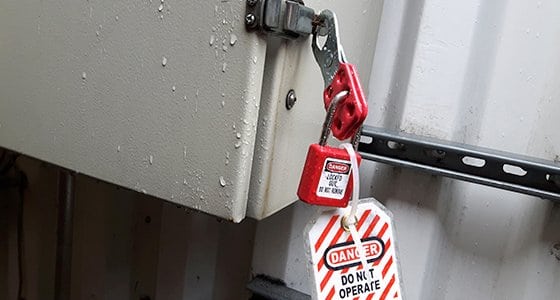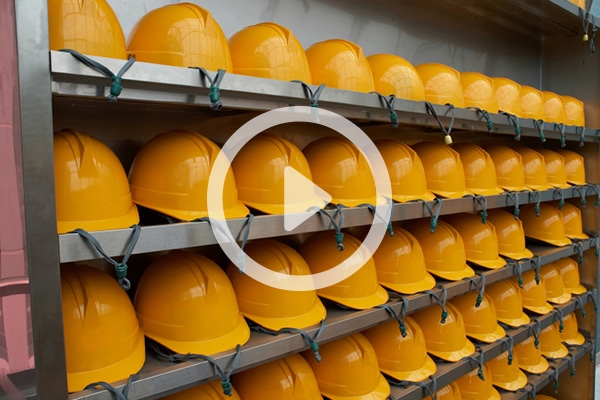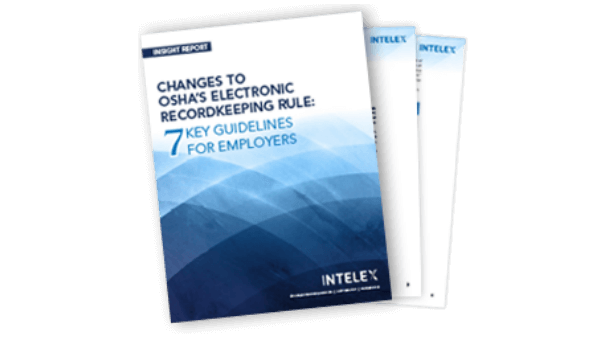
What is an
OSHA inspection?
The Occupational Safety and Health Administration (OSHA) enforces workplace safety and health requirements. An OSHA inspection without notice is normal and employers have the right to insist that compliance officers obtain an inspection warrant before entering the worksite.
What to know during an OSHA inspection
When do OSHA
Inspections Occur?
- There is an imminent danger that was reported to the agency
- A fatality or catastrophic incident occurs
- An employee complaint
- An industry is deemed high hazard
- Inspection/enforcement activity around Special Emphasis Programs


When an OSHA
Inspector Arrives
An OSHA surprise inspection can result in negative outcomes for companies if violations are found. The advance planning that happens before OSHA shows up should include:
- Ensuring safety records and other programs and training material are in order
- Being compliant with the OSHA standards applicable to your operation
- Having the equipment available needed during an inspection
- Reviewing previous citations
- Reviewing insurance and third-party audits
OSHA
Inspection Process
Don’t expect advance notice of a first-visit OSHA inspection. You can’t postpone or delay an inspection to another day and OSHA inspectors will return with a court-ordered warrant if they are denied access to do an inspection beyond an hour after arriving. So, when the inspector shows up:
- Ask for their OSHA inspector credentials
- Be ready to produce OSHA 300 logs
- Know where to find other OSHA documents required
- A company management official should be there

Intelex Software solutions that can
prepare you for an OSHA Inspection
Intelex software solutions centralize and maintain your injury and illness logs and training records in one location, which means you can quickly gather any documentation needed to support your health and safety efforts – and be prepared when an OSHA inspector shows up at your door.
Preparing for an OSHA Inspection
Have an OSHA
Inspection Checklist
Be prepared before an OSHA inspector arrives by creating an action plan that assigns inspection-related activities and provides a checklist of things to consider, including:
- Determining who should be notified if OSHA arrives
- Knowing you can delay an inspection by up to 60 minutes
- Making sure safety records and other documents are in order


Be aware of OSHA
Most Cited Violations
There are violations that OSHA typically looks for and these are likely to trigger an investigation. The Top 10 OSHA most cited violations include:
- Fall Protection, General Requirements (1926.501)
- Respiratory Protection (1910.134)
- Ladders (1926.1053)
- Scaffolding (1926.451)
- Hazard Communication (1910.1200)
- Lockout/Tagout (1910.147)
- Fall Protection (1926.503)
- PPE – Eye and Face Protection (1926.102)
- Powered Industrial Trucks (1910.178)
- Machine Guarding (1910.212)
Frequently Asked Questions
It’s likely. During the past two years, OSHA has limited most inspections to fatalities, catastrophic accidents and coronavirus issues. OSHA may look to make up for lost inspections, citations and penalties with more frequent inspections
Yes, OSHA fines are continually increasing and have been doing so each year from 2016. Currently “willful” and “repeat” violations are subject to a maximum fine of $136,653, while “serious” and “other” violations are subject to fines up to $13,653.
You can ask an OSHA inspector to wait up to 60 minutes before proceeding with an inspection.
There must be a clear set of reasons behind any OSHA investigation and burden of proof is required to conduct an onsite inspection.
Be co-operative and responsive when an OSHA inspector arrives. Focus on maintaining control of the onsite safety inspection and remember that an OSHA inspector is only authorized to inspect where you give consent, unless they have a warrant.
Legally, OSHA only has access to those areas defined in the complaint unless they see other violations in plain view during a walkaround tour of your facilities.
Yes. Be aware that an inspector may take photographs during an inspection, and you should likewise do the same.
Yes. OSHA inspectors have a right to interview non-management employees.
A closing conference with OSHA happens after an inspection is completed. It can take place immediately after an inspection is completed or during a later phone call or in-person meeting.
Expand your knowledge of
OSHA with these featured resources
INSIGHT REPORT
Private industry employers in 2020 reported 2.7 million non-fatal workplace injuries and illnesses. Certain companies with more than 10 employees must keep a record of serious work-related injuries and illnesses to be filed with the OSHA.
ON-DEMAND WEBINAR
Former OSHA compliance officer and corporate EHS director, David Lynn, shared his insights into what OSHA looks for when writing a citation and how to avoid receiving a citation for some of OSHA’s most common violations. In this webinar he offers real-world stories from his time at OSHA and in the corporate world.
INSIGHT REPORT
Understanding just what workplace injury and illness information must be reported to the U.S. Occupational Safety and Health Administration (OSHA) has become a confusing and frustrating exercise for many employers.
 1 877 932 3747
1 877 932 3747














